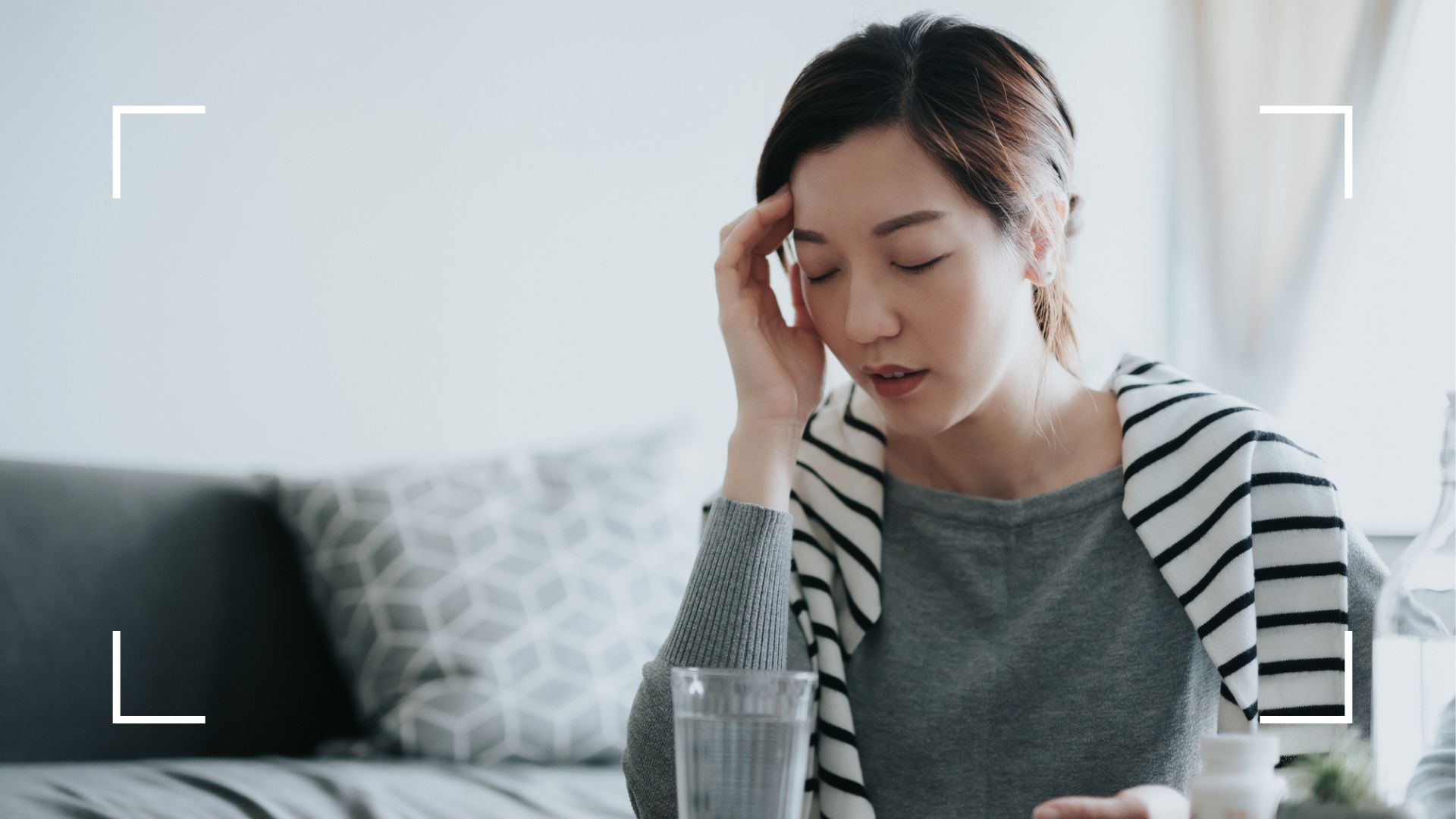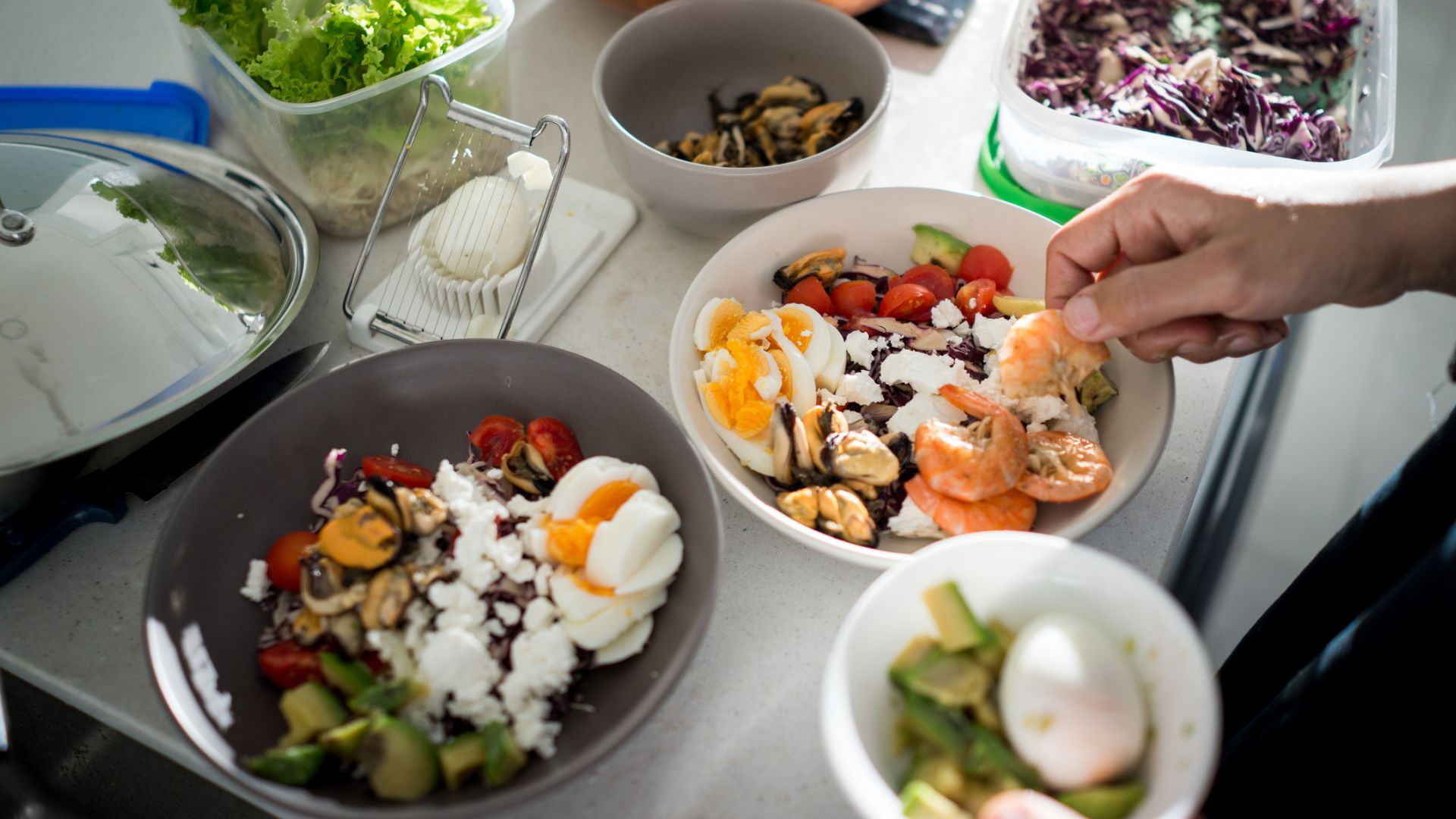What is a keto headache and are headaches when dieting normal?
If you're experiencing a keto headache, this is what you should do according to a dietician


You might be already all too familiar with a keto headache if you’re following the keto diet, a low-carb plan for weight loss.
It’s one of the many symptoms of keto flu, which also includes fatigue, irritability, nausea, problems with sleeping, and constipation, but keto headaches hand out many of the same nasty side effects that will leave you feeling unwell. In those moments, it’s important to consider whether the keto diet is right for you and whether you’re eating enough calories to stay healthy. If you’re ever in doubt, consult a doctor for advice.
The ketogenic diet cuts out one key food group: carbohydrates. While this may be an effective way to get into a calorie deficit to lose weight if done healthily, as one of the key components of many day-to-day eating habits, it’s not surprising that removing carbs completely comes with a whole host of side effects - and not just headaches.
What is a keto headache?
A keto headache is a painful headache that those who follow the ketogenic diet tend to experience when they first switch to the program. It's a common side effect as the body experiences a drop in glucose levels, leading to ketosis. As dietician and health expert at My Juniper, Deborah Deprez, says, it’s a real downside of following the eating plan.
“One major side effect that many who undertake the keto diet suffer with is headaches,” she says. The intensity, frequentness, and severity of the headaches will naturally differ from person to person depending on various factors though, including sleep patterns, other eating habits, stress levels, and hormone fluctuations. The good news is that they don’t tend to last for too long.
Why do keto headaches happen?
When you begin the keto diet, your body begins to rely on ketone bodies instead of glucose as your primary source of energy, in turn, lowering your blood sugar levels, explains Deborah. “This lowering of blood sugar and transition into ketosis stresses the brain, causing mental fatigue, brain fog, and headaches.”
Ketosis is an essential part of the keto diet, as the name suggests, but getting into this state requires a real change from most people’s regular eating habits. “As well as dramatically cutting down the level of carbohydrates you consume, there are certain foods that you’re prohibited from eating on the keto diet. “These include grains, starchy vegetables, high-sugar fruits, sweetened yogurts, juices, honey, chips, crackers, and baked goods.”
Sign up to our free daily email for the latest royal and entertainment news, interesting opinion, expert advice on styling and beauty trends, and no-nonsense guides to the health and wellness questions you want answered.
These components make up the typical eating habits of many people, research from University College Cork suggests. They’re also encouraged as part of many popular plans, including the Mediterranean diet, intermittent fasting plans like the 16:8 diet, and the Cambridge diet, so whether you’re looking to lose weight or not, your body is probably used to consuming these foods regularly - if not throughout the day.
But that’s not the only reason that you could be experiencing a headache on the keto diet. “You may also begin to suffer from headaches due to dehydration, as people find that they tend to urinate a lot more when they shift into ketosis,” Deborah says.

Is it normal to have a headache when dieting generally?
Yes, unfortunately, dieting is one of the most common causes of tension headaches, where you feel pain on both sides of your head. It's something that many people experience when they try and lose weight since many plans require a cutback on at least one essential nutrient, the most common one being carbohydrates.
“This lowers our blood sugar which makes our brain feel starved. In turn, the organ becomes stressed and inflamed,” says Elisa Gomez de Bonilla, nutritionist at Oxford Online Pharmacy.
But other bodily reactions can also be expected. “These include constipation, diarrhea, and bloating from changing our food habits, such as the time of eating or avoiding certain food groups,” she says. “Our bodies take time to readjust to new regimes and these side effects are to be expected.”
How to stop a keto headache
If you’re experiencing a keto headache, increase how much water you drink daily. “To help combat keto headaches, make sure that you’re drinking lots of water while also limiting your alcohol intake,” Deborah says. “Also, make sure that you’re eating lots of low-carb, water-rich foods to keep you hydrated.”
In the short term, a study by Hull Royal Infirmary suggests that taking paracetamol or ibuprofen could also be the best course of action. They found that these are among some of the best migraine cures and one of the best ways to alleviate tension headaches.
However, it's important to always consult your doctor before taking any new medication.

Grace Walsh is woman&home's Health Channel Editor, working across the areas of fitness, nutrition, sleep, mental health, relationships, and sex. She is also a qualified fitness instructor. In 2025, she will be taking on her third marathon in Brighton, completing her first ultra marathon, and qualifying as a certified personal trainer and nutrition coach.
A digital journalist with over seven years experience as a writer and editor for UK publications, Grace has covered (almost) everything in the world of health and wellbeing with bylines in Cosmopolitan, Red, The i Paper, GoodtoKnow, and more.